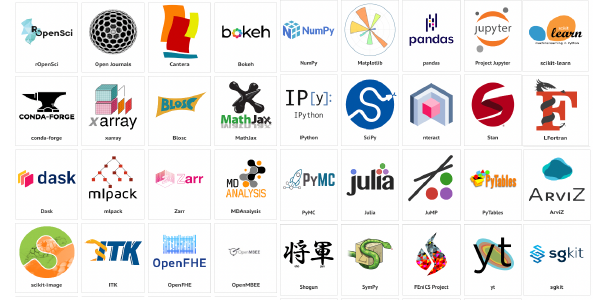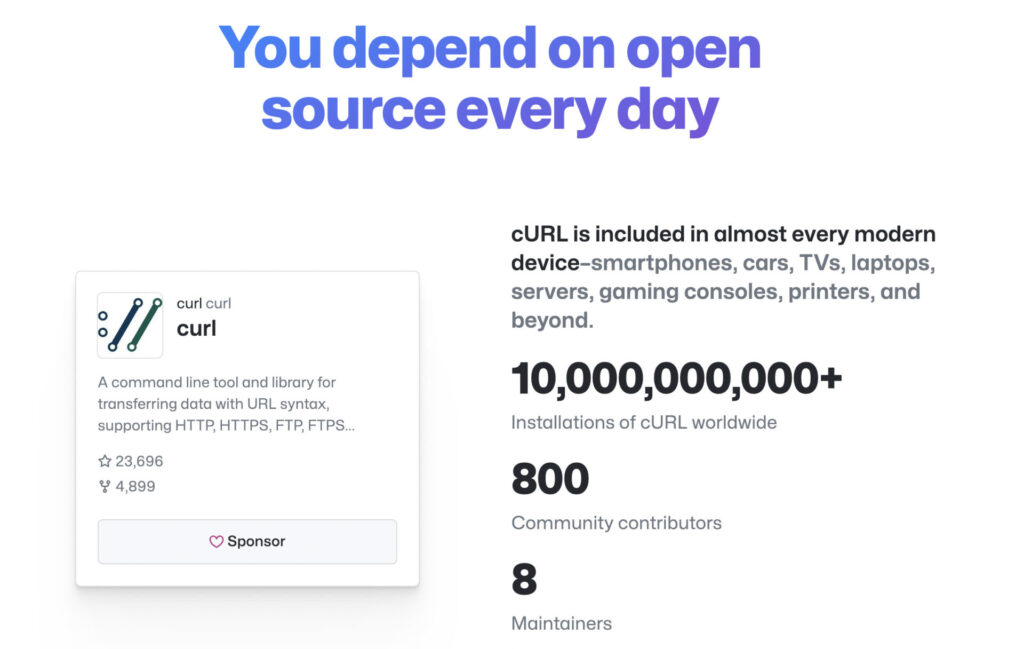
Azavea has donated a portion of its profits to charitable organizations for more than a decade. In brief, we dedicate a portion of our profits each year to be distributed to charitable organizations, and every Azavean helps to decide by casting shares of our profit toward the charitable organizations they want to support.
A few years ago I received a suggestion from a colleague to consider extending the charitable donation program to donations for open source projects and we adopted this suggestion at the end of 2020, aligning the process with our charitable contribution allocation process.
How does our 1% for Open Source program work?
As a brand new program, the process differs slightly from our other charitable donations. In order to get started, I invite everyone in the company to nominate open source projects that fit a few parameters:
- We use the library or software tool regularly
- It’s a stable project with a positive reputation
- It isn’t already primarily supported by a major corporation (ex. React, Angular, etc.)
Then, similar to the charitable donation initiative, every person in the company can allocate 100 votes to the project(s) they want to support. Once all of the votes are cast, we divvy up the funds based on the total number allocated to each open source project.
Why support Open Source projects?
Almost all software today relies on open source software to a greater or lesser degree. While this is, in some respects, a triumph of collective action as well as a demonstration of the power of open knowledge systems, it also cultivates an ecosystem in which there are critical tools that may have little or no financial backing. The ethos of unpaid volunteers building tools used by millions of people is compelling, but it’s also a vulnerability. From Heartbleed to Log4Shell, over the past few years, we have seen several widespread security vulnerabilities in open source software libraries managed by small groups of people. In a recent report by the LInux Foundation and Snyk, these incidents have undermined trust in open source tools.

I firmly believe that open source tools are safer to use than closed, proprietary tools, but, nonetheless, some funding would help these projects develop greater sustainability. Funding isn’t the only issue, but lack of financial support has been a long-term challenge for many open source projects. In response, a few organizations have made investments in developing new funding infrastructure for open source projects, including Buy Me a Coffee, GitHub Sponsors, and the Open Collective. I think the Open Collective is particularly intriguing as its extended the transparency at the root of open source software to ensuring that all financial transactions are also open.
Azavea does not solely use open source software; we have been an Esri and Microsoft business partner for almost 20 years, and commercial tools like these are an important part of many of our customers’ infrastructure. However, Esri and Microsoft both rely upon and support many open source projects, and, Azavea, like most software engineering firms, makes extensive use of open source software libraries and tools; they are a critical component of everything we build.
How do our contributions benefit the Open Source community?
In our geospatial software ecosystem, Paul Ramsey has done yeoman’s work to draw attention to the need for financial support that open source projects need. Paul’s voice is inspiring, and it has helped motivate me to support the shared knowledge infrastructure that we leverage. Over the past several years, Azavea has supported open source projects through contributions of code, sponsoring open source conferences, sponsoring and contributing to code sprints, and other activities. Our 1% for Open Source program aims to go further by allocating some of our profits each year to a few of the projects we rely upon. We’re a small company so the amounts are modest (and Azavea isn’t always profitable), but I feel that every bit helps these projects remain viable and sustainable. Over the past two years, we have been able to support the following projects through this program:
- Apache Foundation
- ChakraUI
- Django
- Mablibre
- NumFocus (supports libraries related to numerical computation, such as NumPy, pandas, SciPy, IPython, Jupyter, Zarr, xarray, GDAL – we use one or more of these libraries on almost every project, and you can read about an example in an article on the NumFocus blog)
- Open Geospatial Foundation (OSGeo)
- PostgreSQL
- Python Software Foundation
All of these organizations welcome financial contributions and most are incorporated as nonprofit organizations. The funds are used in an array of ways, including:
- Paying for travel expenses for team members to gather in person for planning and code sprints
- Enabling key engineers to devote dedicated time to the project
- Funding testing infrastructure
- Funding fellowships and internships
I think everyone in the technology ecosystem that uses open source software has a responsibility to help support it. It is our industry’s global, distributed supply chain, and we depend on it every day. If you use open source tools in your work, consider joining us. How might your organization help support the open source software ecosystem?
